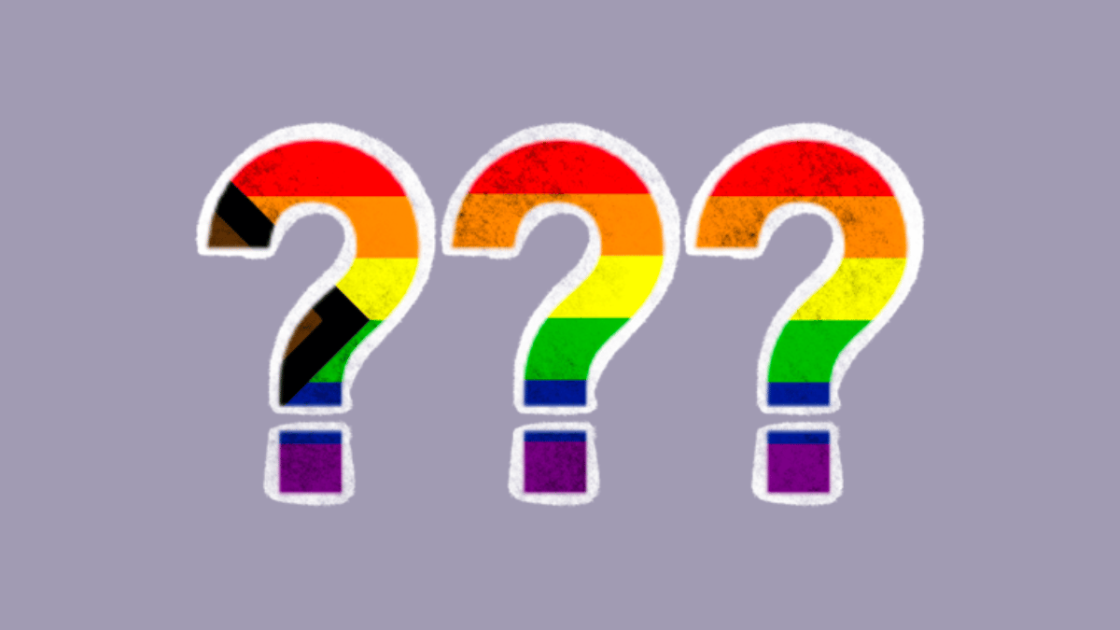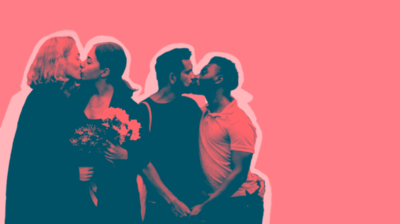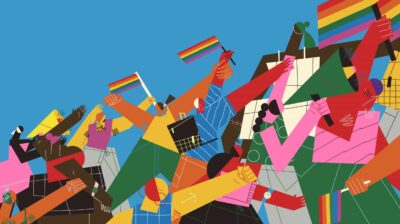What is sexuality?
Sexuality can be complex and is expressed in different ways

Everybody has a sexuality, it is a central part of who we are. Your sexual identity is something that may stay the same throughout your life or change over time. Many people identify as straight, bisexual, gay or lesbian, but these are not the only sexual identities. People can also identify as asexual, meaning they experience little to no sexual attraction or desire. For some people, defining their sexuality is important to them. However, many people choose not to use a label to define their sexuality.
What is sexuality?
A person’s sexuality is complex, and can be made up of different factors such as sex, gender, identity, expression and societal influences.
Aspects of sexuality
- sex
- gender identity and roles
- sexual orientation
- pleasure
- intimacy
- reproduction
Expressions of sexuality
- thoughts
- desires
- attitudes
- behaviours
- practices
- roles
- relationships
What is sexual attraction?
Most people have sexual desires in some way or another. This means they find other people attractive and think about them in a sexual way. Some people want to have sex with other people, whereas others are happy to just think about it. An important aspect of sexuality is how you think and feel about sex.
Healthy sexuality is about having a confident, comfortable and communicative attitude towards yourself and your sexual desires, whether you want to have sex or not.
What does sexual orientation mean?
Part of your sexuality is your sexual orientation. Sexual orientation is who you fancy. This could be someone of a different gender to you, someone of the same gender, or all or none of the above. Gender is how you identify yourself. Examples of gender are man, woman, non-binary, genderqueer, agender and more. During your teenage years, you may start exploring your sexuality and sexual identity to find out what you’re into.
You might feel unsure about your sexual orientation, or what gender you find attractive might change during your life. This is totally ok – many people are attracted to different genders or like different things sexually at different stages in their lives.
Remember, sexual orientation is different from gender identity. This article deals largely with sexual identity. For more information on gender identity and being transgender, check out our article here.
Being LGBTI+
LGBTI+ is a commonly used acronym for Lesbian, Gay, Bisexual, Transgender, and Intersex. Sometimes the acronym is expanded to LGBTQIA+ or other versions that include Queer, Questioning and Asexual. The + sign is to signify other categories of gender and sexual identity that aren’t accurately described by these terms. Sometimes it is shortened to just LGBT.
LGBT stands for lesbian, gay, bisexual or transgender.
- Lesbian means a woman who is mainly attracted to other women
- Gay means a man who is mainly attracted to other men and is sometimes used to describe women who are attracted to other women too
- Bisexual means a person who is attracted to more than one gender
- Transgender means someone whose gender is different from the gender they were given at birth
- Straight or heterosexual means a person who is attracted to people of a different gender to their own
Some people know their sexual identity from a young age, some people find out at different points in their life, and some people feel completely differently at multiple times during their life. It’s important to remember that not everyone fits neatly into one of these categories, and some people don’t identify as either LGBTI+ or straight.
It’s ok to take your time to experiment and think about what you like. The most important thing is that you feel comfortable and proud of who you are, no matter what way you identify.
Am I LGBTI+?
If you are usually emotionally and sexually attracted to the same gender, you may be gay or lesbian. If you feel attracted to more than one gender or have relationships with more than one gender, you may be bisexual. If you are attracted to people regardless of gender identity and expression you could be pansexual. If you experience little to no sexual attraction or desire you could be asexual. If your gender identity and/or gender expression differs from the gender assigned to you at birth, you may be transgender. If you feel your gender identity is neither exclusively woman or man or is in between or beyond the gender binary, you may be non-binary.
If you think you are gay, lesbian, bisexual or any other sexual identity, there’s nothing wrong with exploring those feelings and having relationships to help you decide. Many people will experience crushes on someone of the same gender as they are growing up, and this can mean that they are gay or lesbian, or it may not. Their feelings may also change and they can find that they are more attracted to the opposite gender, or both genders, as time goes on. Sexuality can be an ever evolving part of one’s identity.
Telling someone about your sexuality
Identifying your sexuality and becoming comfortable with it is a process that can take time, and there is nothing you have to do within a certain time frame. You might feel like you are ready to tell certain people in your life, and that is great, but you do not have to tell anyone unless you feel comfortable doing so.
The opinion of our friends and family can mean a lot to us, and it can be nerve-wracking to both keep something from them or decide to tell them. If you are struggling with your feelings around telling someone you are LGBTI+, speaking about it can help. If you need emotional support at any time, our free, 24/7 text support service Text About It is there to help. We offer a 24/7 anonymous text message support service where you can connect with a trained volunteer who will listen to you, and help you to move forward feeling better. Free-text SPUNOUT to 50808 to begin.
If you think you are LGBTI+ it can help to connect with other young people who are too, to help you learn more about yourself and find friends with similar experiences. Belong To is the national organisation for LGBTQ+ youth in Ireland. Getting involved with an organisation like BeLonG To can be a way of finding support and friendship during a new stage in your life.
Need more information, advice or guidance?
We offer information, advice and guidance about the issues that matter to you. Our online Youth Information Chat service is for 16 to 25 year olds and is available Monday to Friday, 4pm to 8pm (excluding Bank Holidays).






